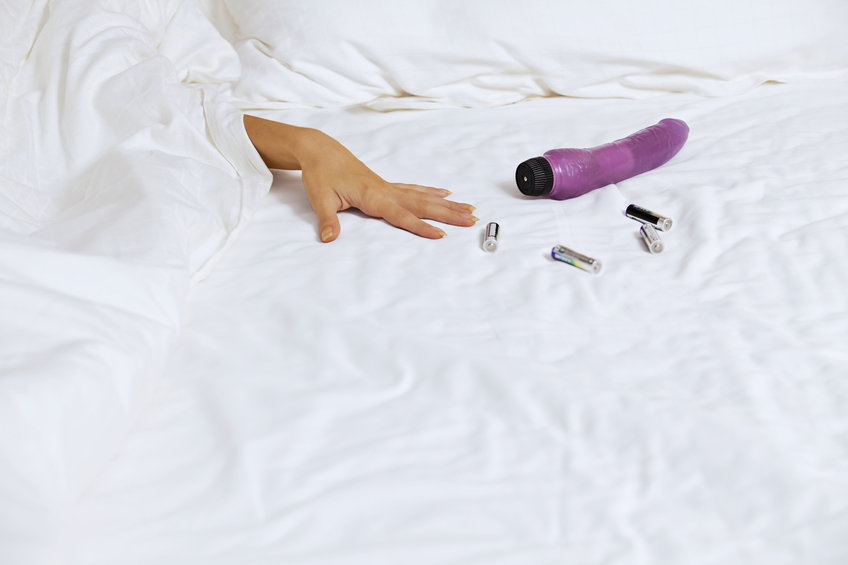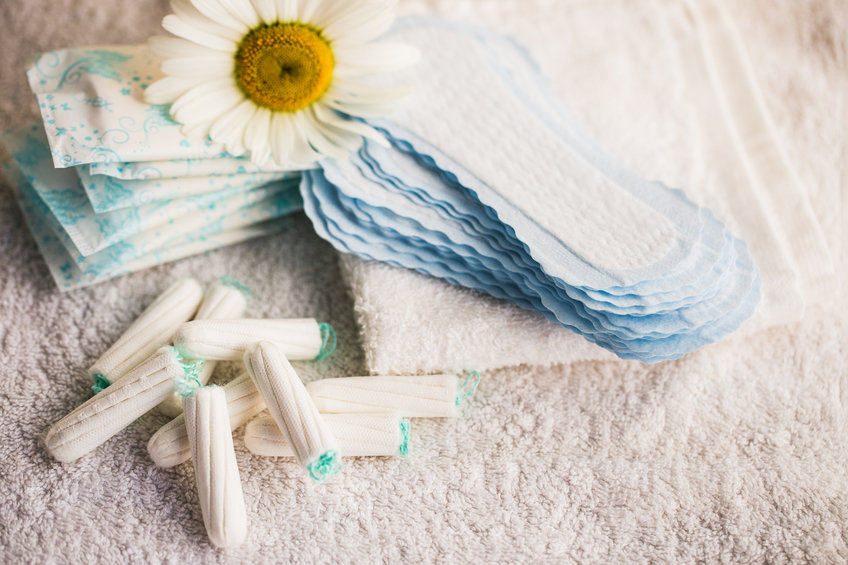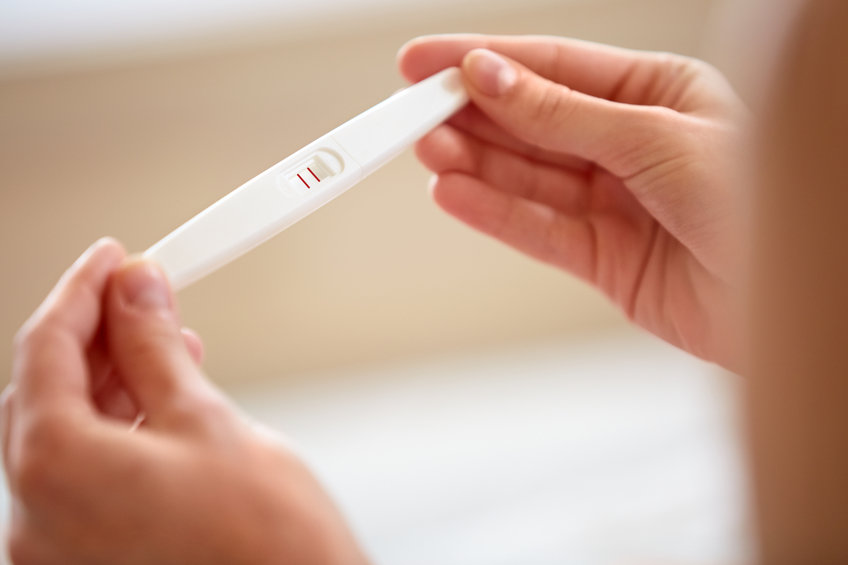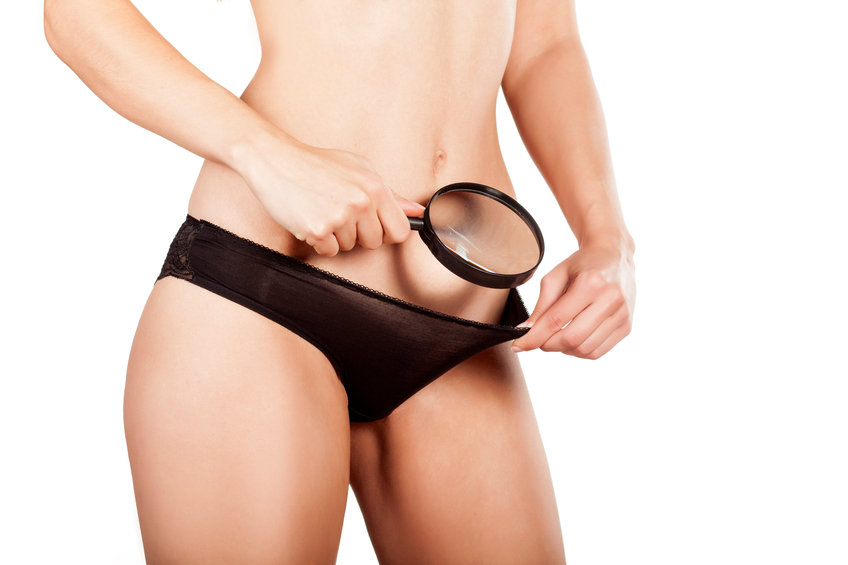Most women probably don't reflect on their bodies this way, but just think, we've already spent more time with our vaginas than anything else in life. She's always there — not always the friend we want, but almost always the friend we need. Seriously, we take this particular part of our anatomy for granted, don't we? Think about it — it's unfortunately pretty true, even if we don't want to admit it…
In fact, many of us are completely oblivious when it comes to our vagina and all the ways she works for us, sexually and otherwise. We only realized how much we didn't know — and needed to know — after doing some research, which included speaking with sexpert Michelle Hope. Ms. Hope more than cleared things up for us.
Most of us know how the pleasure parts of our bodies work for us. However, who knew our lovely little lady parts could also have a direct correlation to how well we sleep and how much our skin glows? That's right. It can be a very advantageous relationship when we know how it all works together in our bodies.
More from CafeMom: 15 Raw Birth Photos That Show How Amazing the Vagina Really Is
So with that said, here are the 10 nuggets of wisdom pertaining to vaginal health (sexually and otherwise) that we learned and every woman really needs to know, too.
Vaginal Anatomy

The vagina is simply the muscular tube leading from your external genitals to the cervix of the uterus, but 61 percent of people believe otherwise, thinking that the clitoris and urethra are also in Club V.
But the vagina is totally its own entity — the urethra is the duct that lets you go to the bathroom, while the clitoris … well, you know.
Pink Balls Are a Thing

It turns out that "pink balls" is no more a myth than blue balls. It's medically known as anorgasmia and best defined as "an individual's inability to experience orgasm or long delays in reaching orgasm." According to Hope, pink balls are far more common that we ever knew, with 10 percent of women affected.
50 Shades of Pink

There are four different types of anorgasmia: 1) Situational anorgasmia is when one is able to orgasm under certain circumstances; 2) acquired anorgasmia is when one was able to achieve an orgams once upon a time but is no longer able to; 3) generalized anorgasmia is when one isn't able to achieve an orgasm under any circumstances; 4) lifelong anorgasmia is when a person has gone the entirety of his or her life without ever being able to achieve an orgasm.
More from CafeMom: 5 Things You Didn't Know About Endometriosis
Vibrators FTW

According to a study led by Debra Herbenick, PhD, published in the Journal of Sexual Medicine (2009), findings showed that "vibrator use among women is common [and is] associated with health-promoting behaviors and positive sexual function."
And women who suffer from female sexual dysfunction, anorgasmia, or female sexual arousal syndrome can actually improve their condition by using vibrators. So remember to keep your Rabbit close at all times.
More from CafeMom: 16 Dos & Don'ts of Showing Your Vagina the Love
Counting Sheep Comes Easier

Having trouble sleeping? Try whipping your vibrator out for a quickie. According to Hope, "sexual release has been known to help with sleep, because orgasms cause a surge in the production of oxytocin and endorphins that may act as a type of sedation."
You don't need to tell us twice.
Glow Up

Ever been ridiculously complimented the morning after? Well, if you weren't secretly crediting it to the amazing sex you just had, you probably should. Orgasms are able to help you maintain youthful attitudes, healthy skin, and a bright complexion — basically, that morning glow that comes for free with a satisfying tryst.
Nix That Midol

Remember earlier when we said that orgasms can benefit you in more ways than one? Well, orgasms can also help relieve menstrual cramps. Yep, you're reading this right. And while we're not actually doling out medical advice that you should get rid of your Midol entirely, this is a drug-free way to feel better when Aunt Flo comes to town.
Monitor Your Menses

Sure, most of us monitor our menstrual cycle to make sure it comes and goes, but you should also be making observations of the way your flow is flowing. According to Hope:
An overly heavy flow could be a sign of serious diseases like fibroids, endometriosis, and hypo/hyperthyroid. As well, missed periods could be a sign [of] hormone imbalance like athletic amenorrhea because of over exercising or drastic weight loss, onset of menopause, or even ovarian syndrome.
More from CafeMom: 7 Things You Didn't Know About Women's Orgasms
Fertility Facts

According to the Womanizer Brand LadyParts IQ survey, 79 percent of people are under the impression that "female orgasm" can improve fertility. However, that information is 100 percent false. While orgasms can definitely improve upon your life in many ways — fertility isn't one of them.
Ingrown Unknowns

One of the most interesting eye-openers to come from the survey was that 72 percent of people were unaware of the fact that it's necessary to visit your OB/GYN whenever you have an ingrown hair. WTF, right? Sounds a bit obsessive (and pricey), but there's a reason for it.
Hope reminds us that "you never want anything to fester because of assumptions." She went on to add, "Herpes (HVS2) and genital warts can sometime be tricky to spot and may also be asymptomatic. I always recommend to clients they call the ob-gyn when anything is amiss down there, even a suspected ingrown."




